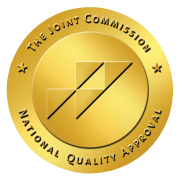What’s a Sociopath? Get Help for Antisocial Personality Disorder
Sociopath is no longer an official diagnosis. The better term is antisocial personality disorder. Yes, it’s a bit of a mouthful, which is likely why you will hear people using sociopath in common culture. So, we are going to talk about what a sociopath is, but we will be calling it ASPD. For the purposes of this article, sociopath and antisocial personality disorder or ASPD will be used interchangeably.
*Note: the stigma around the term “sociopath” in culture is strong. When discussing a person with a mental health disorder, it is important to avoid describing anyone displaying violent or manipulative behavior as “sociopaths” or “psychopaths.”
Whatever you call it, ASPD is a complex mental health personality disorder that, on the surface, looks like a complete disregard for societal norms and the rights of others.
We will dive deeper into ASPD and consider the causes, signs, dangers, and treatment options. The goal is always to find the best path to health for anyone struggling with a mental health disorder like antisocial personality disorder.
ASPD: Definition, Causes, and Signs
The term “sociopath” is taken from two Latin words. Socio means “ally,” but we can see it as stepping in for society. Path means suffering. A sociopath causes suffering to society.
When people suspect ASPD (or sociopathy), it’s usually because they see a lack of empathy, alongside impulsivity and manipulative behavior in a person. There may be consistent irresponsibility and a lack of guilt or shame for the actions that have caused harm. They seem like they don’t care about right and wrong (no conscience), and their actions are proof.
The causes of sociopathy are complex and not fully understood. They likely include genetic factors—such as a family history of antisocial personality disorder or other mental health disorders—and environmental influences, like childhood trauma or neglect.
Signs of ASPD
Antisocial Personality Disorder can pose significant dangers, particularly in close relationships. Some symptoms are not particularly dangerous on their own. Still, with a lack of remorse combined with aggression and impulsivity, a person can show a wide range of manipulation, verbal abuse, and even physical violence.
A person with ASDP may have difficulty forming genuine emotional connections. In a broader societal context, their disregard for laws and social etiquette can lead to conflicts with authority and potential legal issues.
Substance abuse is common among people with ASDP. The combination of symptoms creates a personality willing to explore illicit substances. Then on the other side, many drugs worsen aggression and impulsivity, which can create a volatile situation.
Identifying a person with ASDP can be challenging, as they often blend into society quite effectively. However, a pattern of deceitful behavior, persistent lying, exploiting others, violating social norms, and showing no guilt or remorse for such actions may suggest sociopathic tendencies.
Exploring Treatment Options for Sociopathy
Treating sociopathy is challenging but not impossible. While there’s no ‘cure,’ professional help can provide tools to manage the disorder and mitigate its impacts.
It might be a challenging prospect to get help for someone with ASPD. They are often unwilling or have little to no motivation to change their behaviors. But there is hope.
There are several approaches to the treatment and management of ASPD. It’s important to note that treatment should be individualized and conducted by qualified mental health professionals.
- Psychotherapy: This is often a central component of treatment. Various forms of psychotherapy, such as cognitive behavioral therapy (CBT), may be used. The goal is to help the individual develop coping skills, learn to manage impulsivity and understand the impact of their behavior on others. CBT can help a person with antisocial personality disorder understand the consequences of their behavior and develop healthier ways of relating to others.
- Group Therapy: Sometimes, therapy is more effective in a group setting. Group therapy can provide a space for individuals with ASPD to interact with others with similar issues, sometimes making them more open to feedback and self-reflection.
- Medication: While no medications are specifically approved for treating ASPD, certain medications may be used to manage symptoms or co-occurring disorders. For example, mood stabilizers or antipsychotic medications might be used if the person has difficulty controlling aggression. Antidepressants may be used if the individual also has symptoms of depression.
- Substance Abuse Treatment: Because there is a high co-occurrence rate between ASPD and substance use disorders, treating any underlying substance abuse is often an important part of the management of ASPD. This can include detoxification, medication-assisted treatment, and counseling.
ASPD Treatment in Newport Beach
The best outcome for ASPD comes with consistent, long-term engagement with a person’s treatment plan. Motivation is an important factor for treating any mental health issue, so if you or your loved one suffering from ASPD chooses to ask for help, this is a positive first step.
Do you want to chat about ASPD with one of our mental health professionals? We are available to answer questions and offer guidance on your path to wellness. Call today: 949-503-9655.




